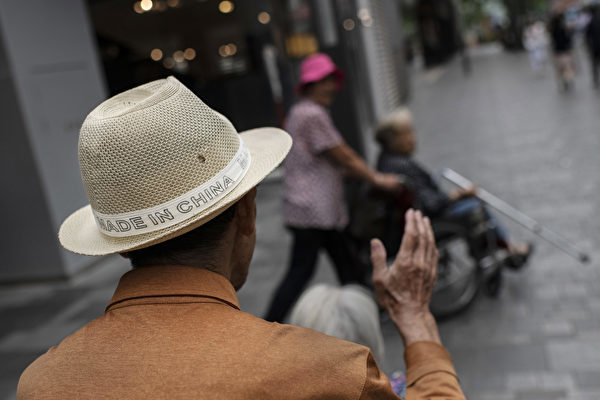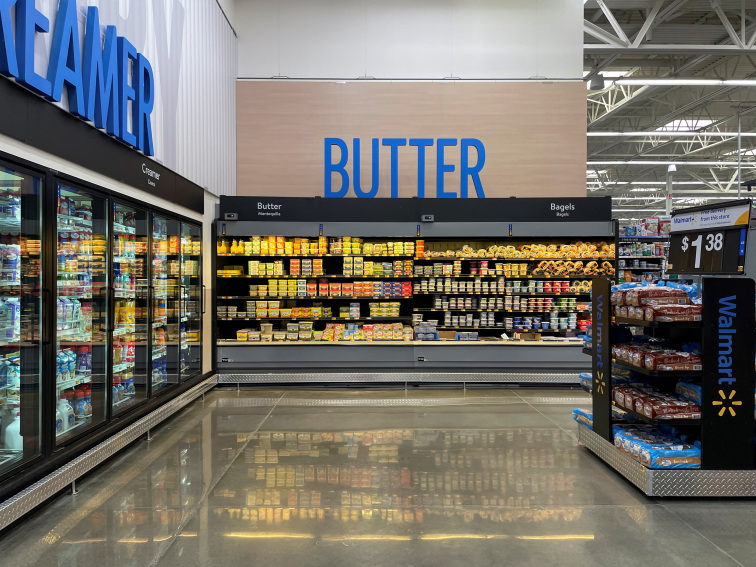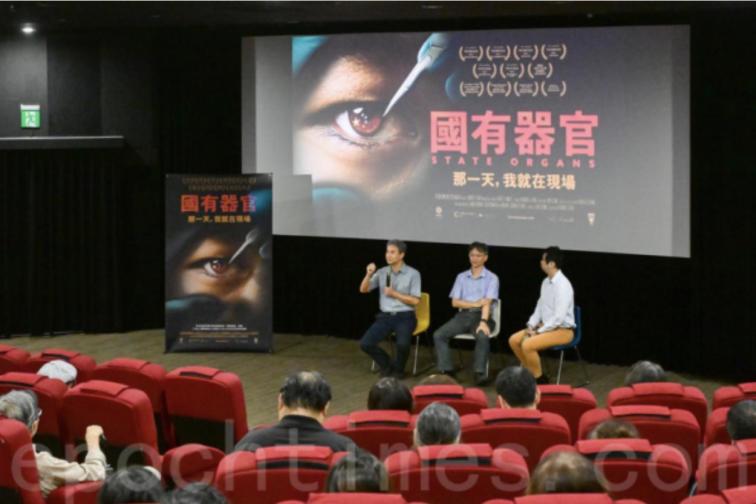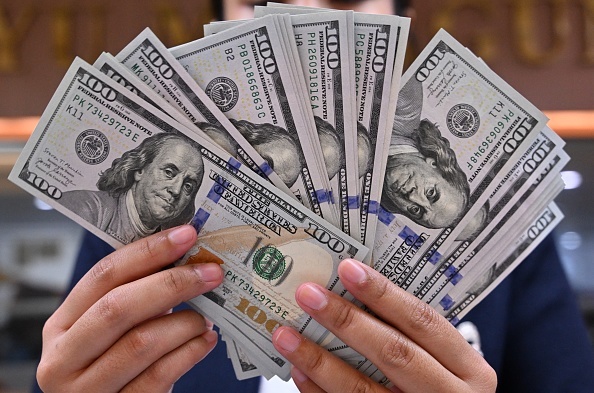The picture shows elderly individuals at a shopping mall in Beijing.
[People News] Beijing’s latest consumer data remains bleak. Retail sales of consumer goods in March dropped nearly 10% year-on-year, and according to a local dissident, even the Chinese Communist Party (CCP)'s top priority, “stability maintenance” budget, is reportedly being cut.
According to Radio Free Asia (RFA), Beijing’s Municipal Bureau of Statistics announced on April 18 that the city's total retail sales of consumer goods fell 9.9% in March compared to the same period last year, and declined 3.3% for the January–March quarter.
Data shows restaurant revenues in March were down 3.1% year-on-year, with a 3.8% decline for the quarter. Retail sales of goods shrank 10.6% in March, down 3.2% for the quarter. Mr. Qian, a Beijing resident, told RFA that many shops and restaurants have gone out of business, with only food delivery outlets seeing stable demand: "The bustling crowds once seen in Beijing are gone. Many places have closed down. It’s quiet now, and there are too many rental signs everywhere."
Streets Are Empty – People Calculating Every Penny
Qian described his lifestyle as one of constant budgeting — spending only when necessary and halving his overall expenses:
"I've saved at least half. Luxuries are completely out of the question. As long as I’m full, that’s enough. We used to dine out occasionally as a family. Now we just cook at home — it’s much cheaper." Another resident, Mr. Chen, told RFA that the decline in Beijing’s commercial activity started when former municipal party chief Cai Qi pushed a campaign to remove the so-called “low-end population.” Many street food vendors serving working-class labourers, such as stalls selling grilled bread, sausages, and cold noodles, were removed and have not returned. "Now, with weak consumer spending, restaurants are struggling and many won’t survive much longer," he said. Qian added that the ongoing slump in consumer sentiment is closely tied to a series of misguided government policies, including the campaign to evict low-income residents, harsh COVID lockdowns, faulty vaccines, and numerous deaths over the past few years. Add to that the exodus of businesses, closures, layoffs, and pay cuts — all contributing to a shrinking consumer base and population outflow in Beijing. "There’s almost nobody at the malls anymore. Many restaurants have closed down. Even formerly busy streets in Beijing and Shanghai now look deserted."
Among product categories, the biggest drops were seen in: Communications equipment: -38.2%; Cultural and office goods: -22.6%; Automobiles: -20.2%; Sports and entertainment goods: -17.6%; Petroleum products: -14.6%; Daily necessities: -13%; Cosmetics: -10.9%; Only a few categories saw growth — gold and jewelry rose 28.5%, and grain and food rose slightly by 1%.
Dissident Ji Feng, who lives in Beijing, told RFA he recently returned to the city after travelling with a friend for over two weeks across 7–8 locations. He reported a general economic malaise everywhere: "Nobody I met said things are better this year — not a single one. A friend who once made money from Maotai liquor investments lost it all in the stock market." An artist once based in Songzhuang, Ji said, over a hundred artists have left the area in the past year: "They can’t sell their work anymore. Businesses are closing. Many moved to cheaper housing in the suburbs. The economy keeps sliding."
People Prefer Saving to Spending – Dining Out Is a Rarity
He said restaurant activity is now largely limited to affordable chains with solid reputations, such as Da Yali and Golden Ladle Northeast Home Cuisine. "These used to have hours-long queues. Now you can walk in anytime. People don’t go out to eat anymore. They don’t host guests. Incomes have dropped. Even those with a bit of money prefer to keep it in the bank, fearing worse days ahead." This trend explains why, despite a declining economy, China’s household savings have actually increased — people lack confidence in the country’s healthcare, education, and retirement systems.
Ji Feng believes that while the government is talking tough in response to Trump’s reciprocal tariff policy, the domestic economy is nowhere near as resilient as Beijing claims. "There’s no rebound — just retaliation. Half of foreign trade has collapsed. If Trump’s tariff policy continues and the U.S.-China decoupling deepens, 70-80% of it is doomed."
He recalled former Vice President Wang Qishan once said during the 2018 trade war: “Chinese people can survive on grass for a year.” Ji warned, "I think the Party-state will launch political campaigns to divert attention. It’s their go-to strategy when things fall apart."
Dissident: Even “Stability Maintenance” Budget Is Drying Up
Ji revealed that the government is cutting costs even in its top priority “stability maintenance” efforts:
"Civil servants are no longer allowed lavish meals. Budget cuts have hit this line item. Even my state security (Guobao) handlers now struggle with reimbursements — they must front the money themselves, and sometimes wait half a year to get reimbursed."
In the past, he said, these agents could pre-approve funds, take him out for meals, or force him into “travel” during sensitive periods. Now, they must apply for permission, pay upfront, and wait indefinitely for reimbursement.
"Once, a Guobao agent spent 1,500 yuan fixing my computer and replacing its battery — it's been almost a year and still no reimbursement."
Before, agents could stay for over a week in Beijing. Now they rush in and out in two to three days, and only with prior approval. Daily allowances for these “forced tourism” surveillance trips are capped — 500 yuan/day in major cities, 350 in provincial capitals, and 250 elsewhere.
Ji noted that, based on last year’s fiscal report, Shanghai is one of the few places with a budget surplus. Most other provinces and cities are running deficits. "Real estate isn’t selling, land isn’t selling, the stock market is down, car sales are down, and even dumping inventory doesn't help anymore. The restaurant sector is dead. Ordinary people are tightening their belts. It's not the officials suffering — they’re still spending. But they’re a small group, not enough to support the whole service industry."
A popular X (formerly Twitter) account, “Li Laoshi Bu Shi Ni Laoshi”, posted a video showing Beijing’s World Trade Centre mall (Guomao) eerily empty — restaurants in the basement, and fashion boutiques on upper floors were shuttered or idle.
"Before the pandemic, it was bustling. Now there’s no one around. Many stores have been vacant for a long time. Whole floors look like ghost towns — workers just sitting around swatting flies," said the video narrator.
Another video from the same platform featured Mr. Zhang, a noodle shop owner in Beijing, saying the past two years have seen massive restaurant closures. So many rental spaces are available now that it's hard to find workers because wages are too high. He noted that around 20 of his friends and family are out of work, and every new business attempt loses money.










News magazine bootstrap themes!
I like this themes, fast loading and look profesional
Thank you Carlos!
You're welcome!
Please support me with give positive rating!
Yes Sure!